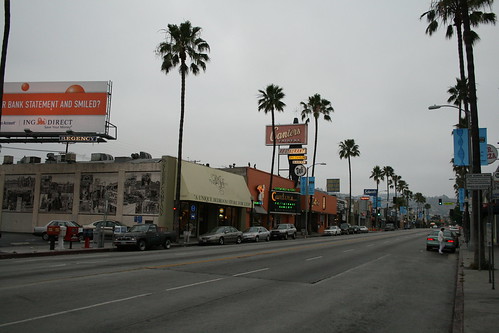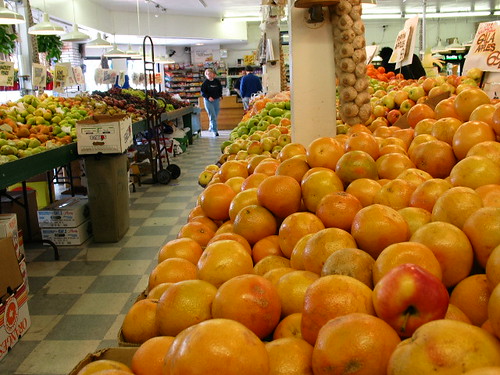
So, this was going to be about Izayoi, this seriously delicious izakaya in Little Tokyo, but as I was writing it, I kept thinking back to the first time I went to an izakaya, in actual big Tokyo (ie, the one in Japan), and kept getting more excited about that. So we'll deal with Izayoi another day, and lay some authentic izakaya groundwork today.
That first time, in Tokyo, was the quintessential izakaya experience: cozy and festive at the same time, with more beer and sake than we could stomach, and small plates of interesting, satisfying, food alongside.
That first time, I was a sad sack. All four of us were. We had been walking up and down the streets of sleepy Asakusa*, in the rain, in the dark, schlepping all our luggage, lost, looking for our hotel (which, if you're interested in cheap lodging, Andon Ryokan is awesome -- think traditional Japanese inn meets Blade Runner). We finally made it there, put down our stuff, and set out to find food. Luckily, Take (TAH-kay), the friendly guy who was running the place (whom we'd eventually befriend and take along to an unbelievable local street festival, a great story for another day) directed us to this spot, only a short drizzly walk from the Andon.
This place was a relief: warm wool paneling and an extremely friendly staff -- who generously overlooked the fact that we were drenched, boorish Americans -- made us immediately feel welcome and comfortable. They took our shoes and umbrellas (for the umbrellas, they had an ingenious contraption that sheathed each one in what can only be described as a protective plastic umbrella condom! Ahh, Japan...), and led us to our table. We sat on the floor, but there were trenches underneath the table so our legs could dangle comfortably. And although the place was pretty big, walls sectioned off every couple tables for an intimate feel.
 This was one of the most fun nights of our trip to Japan. We went from damp and dejected to drunk and delirious over one meal. Small plates kept coming: yakitori, tempura, whale and horse sashimi (!!), tofu, and on and on. And the drinks! First came a bottle of cold sake. For each of us, a small glass was placed into a sake box, and the waiter poured until the glass overflowed and sake filled the box as well. When one person in our party asked for tea, the waiter laughed and told him to drink sake instead. It was that kind of night. Then came frosty, frothy steins of beer as big as our heads. By the end of it, we had forgotten how tired we were, and were laughing so hard, we were crying.
This was one of the most fun nights of our trip to Japan. We went from damp and dejected to drunk and delirious over one meal. Small plates kept coming: yakitori, tempura, whale and horse sashimi (!!), tofu, and on and on. And the drinks! First came a bottle of cold sake. For each of us, a small glass was placed into a sake box, and the waiter poured until the glass overflowed and sake filled the box as well. When one person in our party asked for tea, the waiter laughed and told him to drink sake instead. It was that kind of night. Then came frosty, frothy steins of beer as big as our heads. By the end of it, we had forgotten how tired we were, and were laughing so hard, we were crying.I write this here as a reference. Lately, Japanese-style pubs are sprouting up all over Los Angeles. This experience, to me, was the platonic ideal: these places were designed to whisk you as far away from your harried day as possible. Flowing food and drink, and friendly, festive vibes are perfect to take the edge off, whether it's on a rainy November night in Tokyo, or a balmy November night in Los Angeles.
* Sing it with me: "mama-say mama-sa asakusa". (Yeah, yeah).








